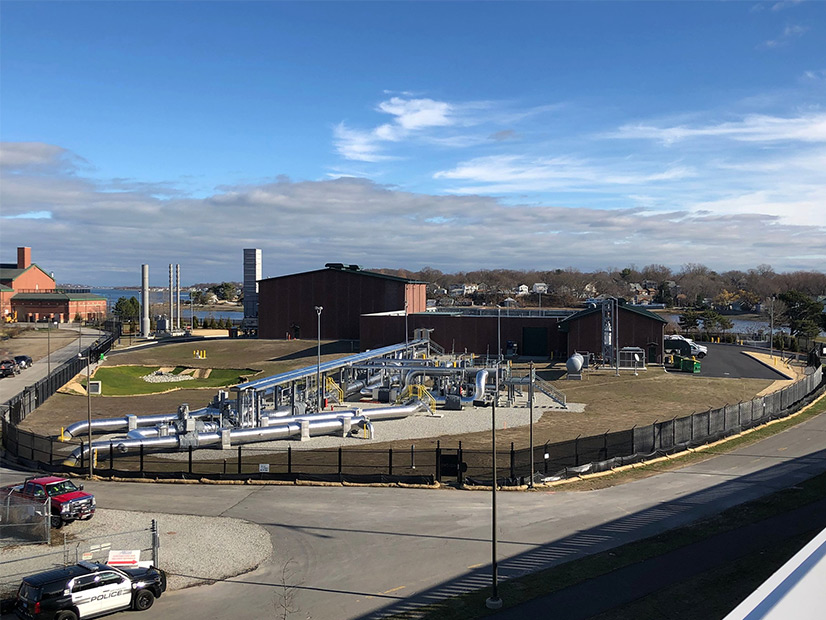Algonquin Gas Transmission is appealing FERC’s decision earlier this year to examine safety concerns with the operation of a compressor station in Weymouth, Mass.
The limited liability company, which is a natural gas pipeline asset of Enbridge, filed a petition last week with the D.C. Circuit Court of Appeals. It is seeking review of FERC’s Feb. 18 order [CP16-9-012] asking for input on, among other things, what the consequences would be of reversing its September 2020 authorization to place the Weymouth Compressor into service.
The Atlantic Bridge pipeline system, which includes the compressor, was thoroughly reviewed by FERC and other agencies “as part of a transparent and inclusive public permitting process,” according to a spokesperson for Enbridge.
The Weymouth Compressor was built to be the cornerstone of the Atlantic Bridge project, which connects two pipelines that allow natural gas from Pennsylvania to travel to New Jersey, up through New England into Canada.
Algonquin filed a request for hearing of FERC’s order establishing a briefing, but FERC did not act on the request.
There has been significant opposition to the compressor station in Massachusetts by residents, elected officials and climate activist groups like the Fore River Residents Against the Compressor (FRRACS).
The group hosted a webinar Tuesday to show residents of communities close to the station how to submit eFilings or comments online to FERC.
The permitting and public comment process is “transparent for the industry, not for the stakeholders,” FRRACS President Alice Arena said.
“If you’re not a lawyer, if you don’t speak government and you don’t have access to people who can help you, it’s not transparent,” Arena added.
The Maine Public Utilities Commission filed comments with FERC opposing the order to re-examine the compressor project. The agency said that final leg of the Atlantic Bridge project from Weymouth to Baileyville, Maine, which began service in January, is an important part of the state’s energy planning. If FERC were to remove the compressor from service, the agency said, “investments already made to facilitate much-needed access to natural gas pipeline capacity … paid for by Maine’s natural gas customers … will be put at risk.”
The Weymouth Compressor, however, has had three unplanned gas releases in the last eight months. It released at least 44,000 standard cubic feet of gas last month after the compressor “experienced an issue” and “safely shut off as designed to prevent equipment damage,” which caused a control device to initiate the venting of gas, according to Enbridge.
A study from Harvard University’s School of Public Health found that deaths associated with natural gas combustion increased in Massachusetts between 2008 and 2017. Natural gas use in buildings led to at least 148 deaths in Massachusetts as of 2017.
“Even if FERC were to diminish capacity for the compressor or limit its operation, that would be a really big deal,” Arena said. The agency would demonstrate it is serious about confronting climate change, she added.
However, if FERC were to allow the Weymouth Compressor to continue operating as is, FRRACS and other groups are concerned it will be a positive signal for new natural gas pipeline development in Massachusetts to transport fuel to Canada.
Under new climate policy in the state, according to Arena, there is no longer a need for natural gas infrastructure. She added that the location of the compressor in Weymouth could serve as a combined solar and battery storage facility.
“The alternatives are there, just not the political willingness,” she said.




